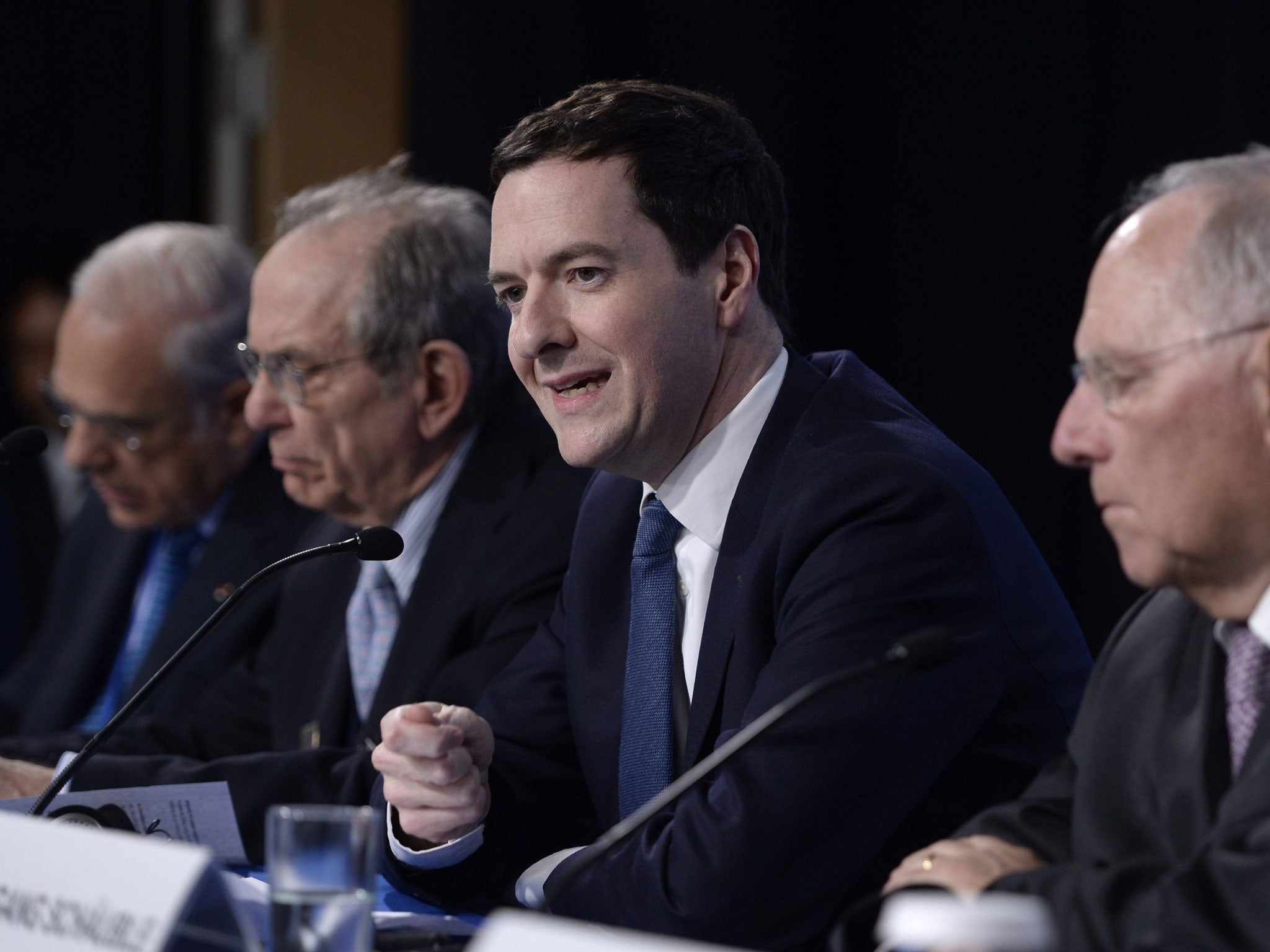Europe’s a start – but the world’s got a long way to go on tax evasion
It may be wondered why co-operation with some of our closest allies was not at this level already

The reverberations created by the release last week of the Panama Papers continue unabated. Today the Chancellor of the Exchequer, George Osborne, along with his counterparts in Germany, Italy, France and Spain announced that the nations were to work together to strike a ‘hammer blow’ against tax evasion. New regulations will enable tax and law enforcement agencies in the five countries to share details about the ultimate owners of shell companies, and to do so in a timely fashion.
Such measures are welcome, although it may be wondered why co-operation with some of our closest European allies was not at this level already. Osborne has also contacted finance ministers of the other G20 countries urging that they join the data-sharing efforts: their responses will be closely monitored. Indeed, for all that the steps taken by Europe’s big five are a helpful sign of action, for an information exchange to have real clout it is American involvement that is most keenly needed.
Indeed, for all the focus in the last fortnight on the role of tax havens in British Overseas Territories (BOTs) and Crown Dependencies, it is notable that it is America which is increasingly the destination of choice for offshore investors, with states including South Dakota and Wyoming joining the long-renowned Delaware in offering low levels of tax and high levels of secrecy for discerning clients. Trust money is flowing in greater volumes than ever out of traditional hotspots like Switzerland and Bermuda to the USA’s more discreet territories. Whether there will be much appetite among America’s political class to join European efforts to clamp down on the tax dodgers remains to be seen therefore.
Moreover, the moves towards greater transparency don’t extend to those BOTs which have come under scrutiny recently. It is a weakness for Osborne, and his European partners are likely to increase the pressure for reform in those territories once the current celebration of today's announcement passes. For all that the Chancellor will disclaim responsibility, Britain’s position vis-à-vis places such as the Cayman and British Virgin Islands is undeniably problematic.
On the other hand, the UK Government can at least point to the fact that it has committed to public registers of beneficial ownership, unlike Germany et al. That is a model others should follow and for which Osborne and the Prime Minister deserve some credit.
One important feature of the new transparency rules is that they remind us that the Panama Papers revealed more than simply some embarrassing facts about David Cameron’s family finances. That he fell so squarely into the spotlight last week was largely a consequence of his poor handling of the revelations. The danger was that the furore around him might distract attention from the wider problems which the Mossack Fonseca documents showed up – primarily the use of secret, shell companies to shuffle vast sums of ill-gotten gains away from prying eyes. Tax evasion is part of that equation; the other part is laundering the proceeds of corruption and other criminality.
Ángel Gurría, secretary general of the Organisation for Economic Co-operation and Development made a good point in response to today's initiative when he highlighted the need to “crack down on the professional enablers” who make tax dodging possible. He is absolutely right. Attention rightly focusses on those who are themselves the dodgers, yet evasion of the dues they owe is made feasible by lawyers, accountants and other financial experts who – at best – turn a blind eye to suspicious activity. Many of those individuals themselves benefit from living and working in low- or no-tax locations. Their own significant wealth is dependent on the maintenance of secrecy and, ultimately, of the status quo.
This much is clear then: the work of Britain and its European allies is a good start. But much more remains still to do if the tax evasion and money laundering which feeds global wealth inequality is to be brought to an end.
Join our commenting forum
Join thought-provoking conversations, follow other Independent readers and see their replies
Comments
Bookmark popover
Removed from bookmarks